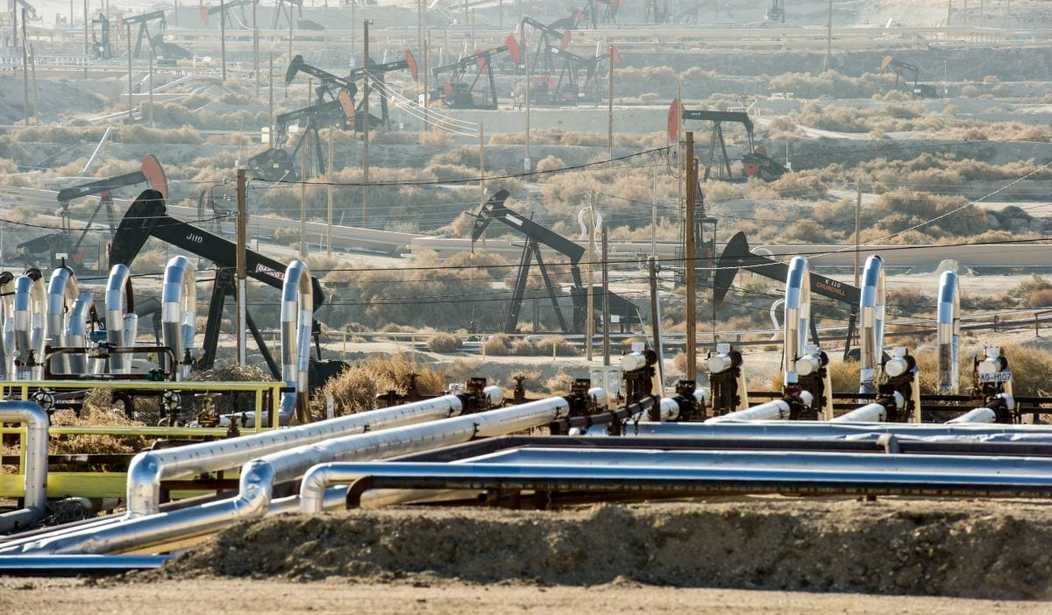A new study conducted by Duke University has confirmed what several previous studies have shown; hydraulic fracturing, or fracking, does not pose a major threat to drinking water.
But the study also confirmed EPA findings that spills of toxic liquids used in fracking can contaminate surface water.
“Based on consistent evidence from comprehensive testing, we found no indication of groundwater contamination over the three-year course of our study,” explained Avner Vengosh, the professor of geochemistry and water quality at Duke’s Nicholas School of the Environment.
The growing industry could help create as many as 3.5 million jobs by 2035, according to the U.S. Chamber of Commerce.
While the study concluded that fracking didn’t contaminate groundwater, the researchers did say accidental spills of fracking wastewater could be dangerous to surface water in the area.
”However, we did find that spill water associated with fracked wells and their wastewater has an impact on the quality of streams in areas of intense shale gas development,” Vengosh added.
“The bottom-line assessment,” he continued, “is that groundwater is so far not being impacted, but surface water is more readily contaminated because of the frequency of spills.”
To complete the research, water samples from 112 drinking wells in northwestern West Virginia were evaluated during a three year period. Twenty of the water wells were sampled prior to drilling or fracking started in the area in order to obtain a baseline for later comparisons.
Tests demonstrated the presence of saline groundwater and methane in both the pre-drilling and post-drilling well water samples. But the samples had a chemistry slightly but distinctly different from the methane and salts found in fracking fluids and shale gas. The findings indicated that the elements occurred naturally in the region’s permeable rock and weren’t related to the result of recent shale gas operations at the site.
The study appears in the journal Geochimica et Cosmochimica Acta.
If you want a clear instance where politics and ideology played a role in impacting government policy on the environment, an examination of the EPA’s conclusions from a 5 year study of fracking’s effects on drinking water safety in the US is in order.
Project scientists wanted to emphasize the dangers of fracking, even though the evidence was scant and inconclusive. At the end, EPA management changed the executive summary to more accurately reflect what the study found.
Documents obtained by APM Reports and Marketplace show that in the six weeks before the study’s public release, officials inserted a key phrase into the executive summary that said researchers did not find evidence of “widespread systemic impacts” of fracking by the oil and gas industry on the nation’s drinking water.
Earlier draft versions emphasized more directly that fracking has contaminated drinking water in some places.
The documents also show that the news release accompanying the scientific study was changed on June 3, 2015, the day before it was made public. A draft displayed a conclusion that the EPA had identified “potential vulnerabilities” to drinking water. But the final release dated June 4, concluded: “Assessment shows hydraulic fracturing activities have not led to widespread, systemic impacts to drinking water resources and identifies important vulnerabilities to drinking water resources.”
In a conference call with reporters about the study on the day it was released, the EPA’s deputy administrator, Tom Burke, highlighted the lack of “widespread, systemic impacts” as the agency’s top finding.
In fact, scientists had found evidence in some places that fracking activity had polluted drinking water supplies.
In all, the agency identified more than two dozen instances in which hydraulic fracturing had an impact on water resources. The agency also identified hundreds of other spills, many of which reached soil and water.
It’s not clear precisely who inserted or ordered the new phrasing. But emails acquired via the Freedom of Information Act show EPA officials, including press officers, met with key advisers to President Obama to discuss marketing strategy a month before the study’s release. The emails also show EPA public relations people exchanging a flurry of messages between 4 and 11 p.m. on the eve of the study’s release.
There is no doubt that if drillers are careless and refuse to follow EPA rules on handling the toxic liquids associated with fracking, that spills will happen and drinking water could be contaminated.
But the EPA found that the actual process of fracking does not cause groundwater contamination. The Duke study has confirmed this, although they too raise the alarm about spills – most of which can be avoided.
The Duke study will not affect the environmentalist’s “fracking is the end of the world” narrative. Anything in the fossil fuel industry that promises abundant energy at cheap prices is a sacrilege in their religion. The current state of the industry is weak, given the glut of oil on the market. But that will eventually change and fracking – which has led to an American fossil fuel Renaissance and made us #1 in production again – will play a huge role in economic growth and the creation of good jobs.










Join the conversation as a VIP Member